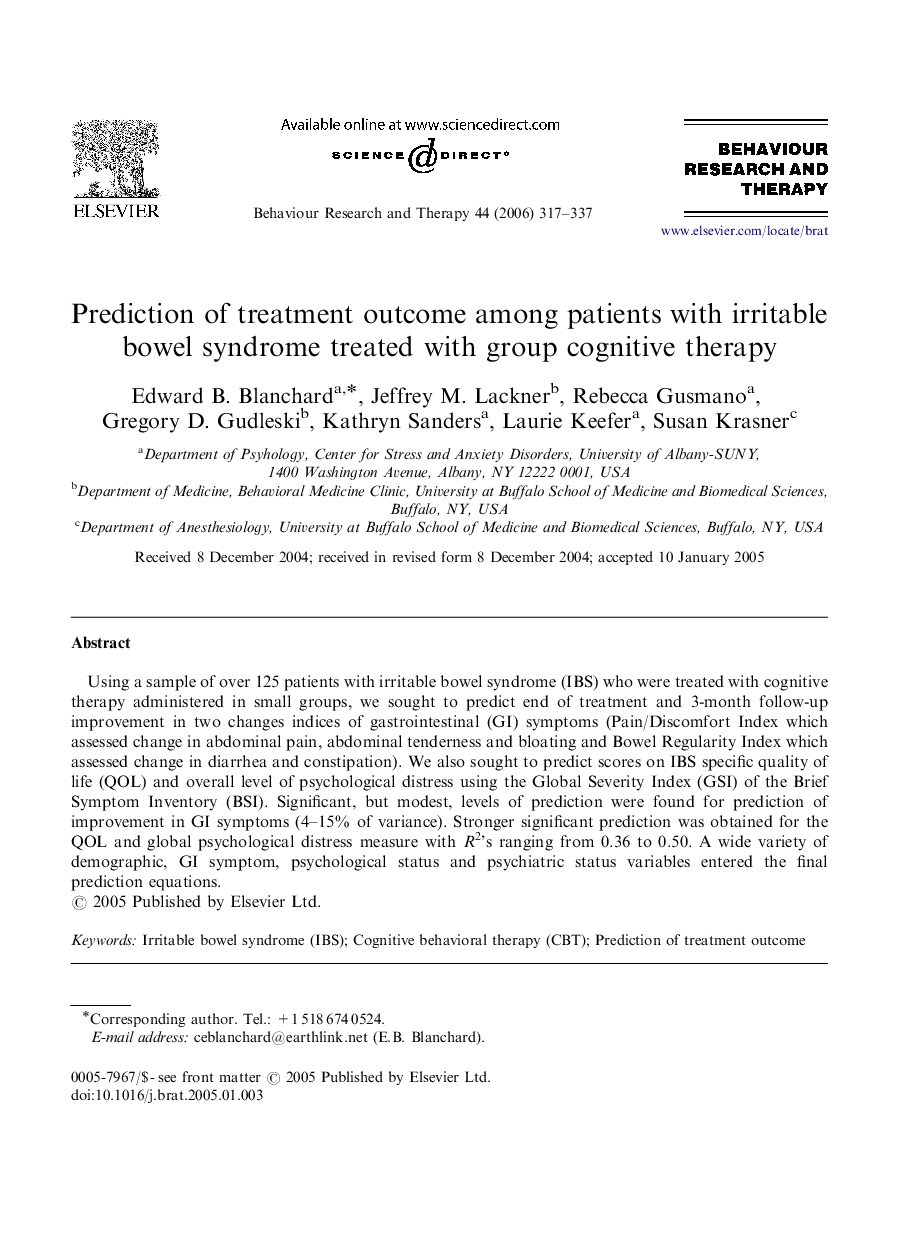| Article ID | Journal | Published Year | Pages | File Type |
|---|---|---|---|---|
| 902609 | Behaviour Research and Therapy | 2006 | 21 Pages |
Using a sample of over 125 patients with irritable bowel syndrome (IBS) who were treated with cognitive therapy administered in small groups, we sought to predict end of treatment and 3-month follow-up improvement in two changes indices of gastrointestinal (GI) symptoms (Pain/Discomfort Index which assessed change in abdominal pain, abdominal tenderness and bloating and Bowel Regularity Index which assessed change in diarrhea and constipation). We also sought to predict scores on IBS specific quality of life (QOL) and overall level of psychological distress using the Global Severity Index (GSI) of the Brief Symptom Inventory (BSI). Significant, but modest, levels of prediction were found for prediction of improvement in GI symptoms (4–15% of variance). Stronger significant prediction was obtained for the QOL and global psychological distress measure with R2R2's ranging from 0.36 to 0.50. A wide variety of demographic, GI symptom, psychological status and psychiatric status variables entered the final prediction equations.
